MercoPress. South Atlantic News Agency
Economy
-
Wednesday, October 12th 2011 - 21:30 UTC
UK unemployment at its highest since 1994 reaches 2.57 million
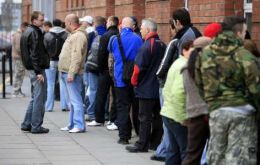
Unemployment in Britain has jumped to its highest level since 1994, with young people hit hardest as private companies fail to make up for job losses in the public sector, piling pressure on the government to boost a stagnant economy.
-
Wednesday, October 12th 2011 - 21:28 UTC
Slovakia parties agree to vote for Euro rescue plan, and advance elections

Parties in Slovakia's fallen government struck a deal with the leftist opposition Wednesday to ratify a plan to bolster the Euro zone's rescue fund by Friday, effectively ending a crisis that had threatened the currency's main safety net.
-
Wednesday, October 12th 2011 - 21:27 UTC
US labour market remains ‘serious challenge’ admits Fed ‘hawk’
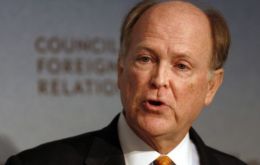
The September jobs report was “a bit of positive news”, but the pace of jobs growth is still too slow to make a significant dent in the unemployment rate, a Federal Reserve policymaker said Wednesday.
-
Wednesday, October 12th 2011 - 21:26 UTC
EC president calls for decisive action on Euro banks recapitalization and Greece

The president of the European Commission called Wednesday for EU leaders to bring forward the introduction of a permanent rescue mechanism for states to mid-2012 from mid-2013 and called for more rigorous capital standards for banks.
-
Wednesday, October 12th 2011 - 06:39 UTC
Falklands Desire Petroleum and Rockhopper reach farm-out agreement and on new drillings
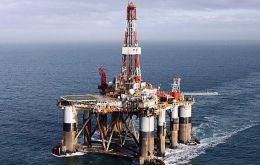
Falkland Islands Desire Petroleum plc announced Wednesday that it has agreed the terms of a farm-out agreement, subject to the approval of the Falkland Islands Government, with Rockhopper Exploration PLC over the northern section of its Tranche D (PL004) licence.
-
Wednesday, October 12th 2011 - 06:27 UTC
S&P and Fitch downgrade main Spanish banks ratings on “dimmed” prospects

Spanish banks including Banco Santander SA and Banco Bilbao Vizcaya Argentaria SA had their ratings cut by Standard & Poor’s, which cited “dimming” growth prospects and “heightened” market turbulence.
-
Wednesday, October 12th 2011 - 05:58 UTC
Uruguayan president on ten-day European trade and business tour
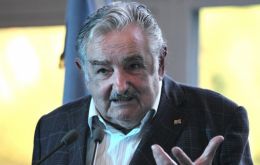
Uruguayan president Jose Mujica left on Tuesday for a ten day visit to Europe that will take him to Sweden, Norway, Germany and Belgium, where he is expected to promote trade, investments and economic development.
-
Wednesday, October 12th 2011 - 05:56 UTC
Great moment for Latin America but “beware of complacency”
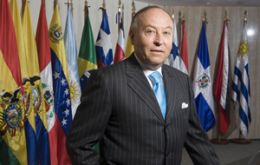
Latin America is going through a “great moment” but can’t be complacent when the European Union and the US are facing major challenges, and the region must definitively address the large integration challenges, warned Enrique García, head of the Andean Promotion Corporation, CAF.
-
Wednesday, October 12th 2011 - 05:51 UTC
Sharp economic predictor selling his firm because it looses money
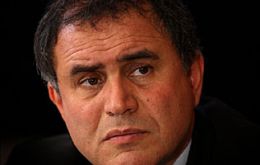
Roubini Global Economics, the global investment research firm co-founded by doom and gloom economist Nouriel Roubini, is reportedly for sale, according to a report from CNBC.
-
Wednesday, October 12th 2011 - 05:49 UTC
Protestors from ‘Stop the Machine’ surge into a US Senate building

United States Capitol Hill police arrested six protesters Tuesday who surged into a Senate office building in Washington, chanting slogans for about 15 minutes before officers intervened.
